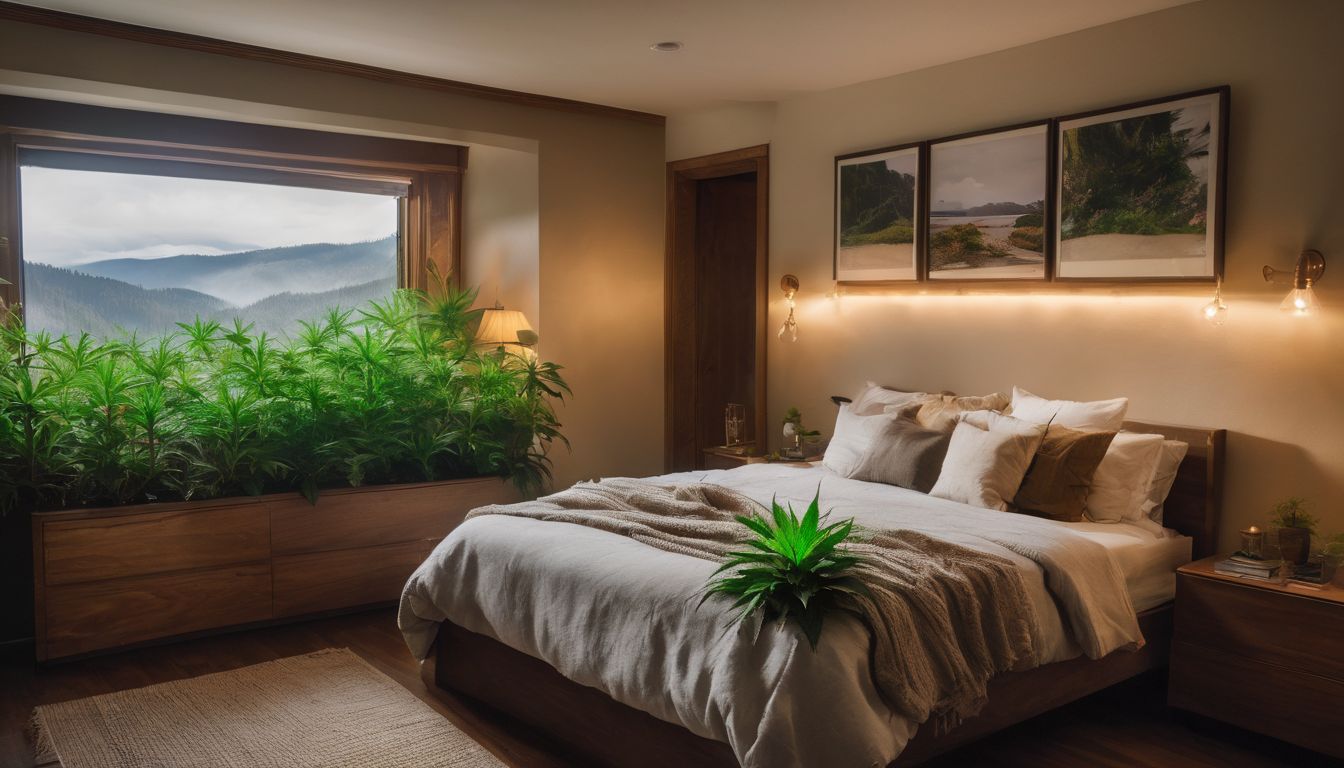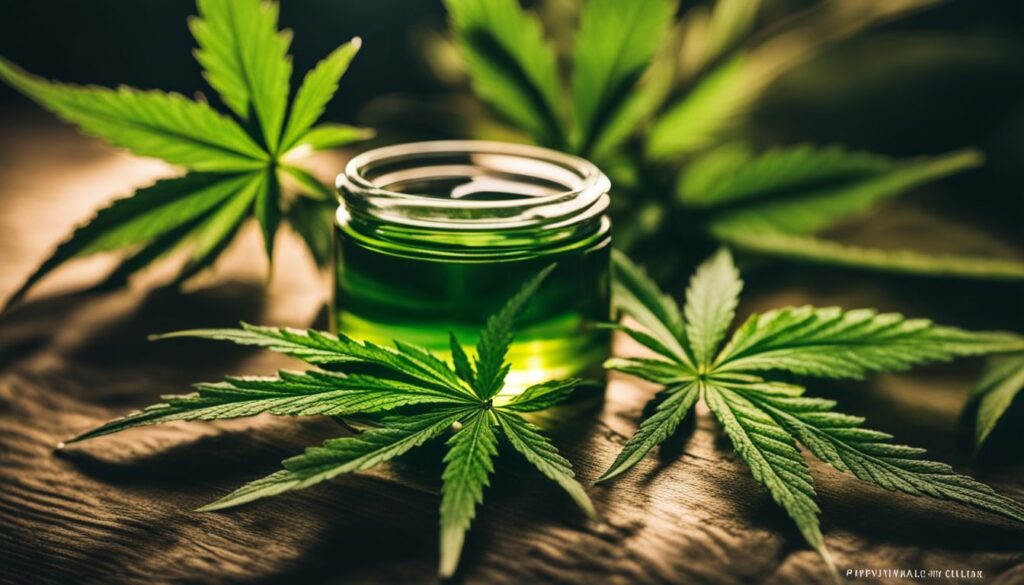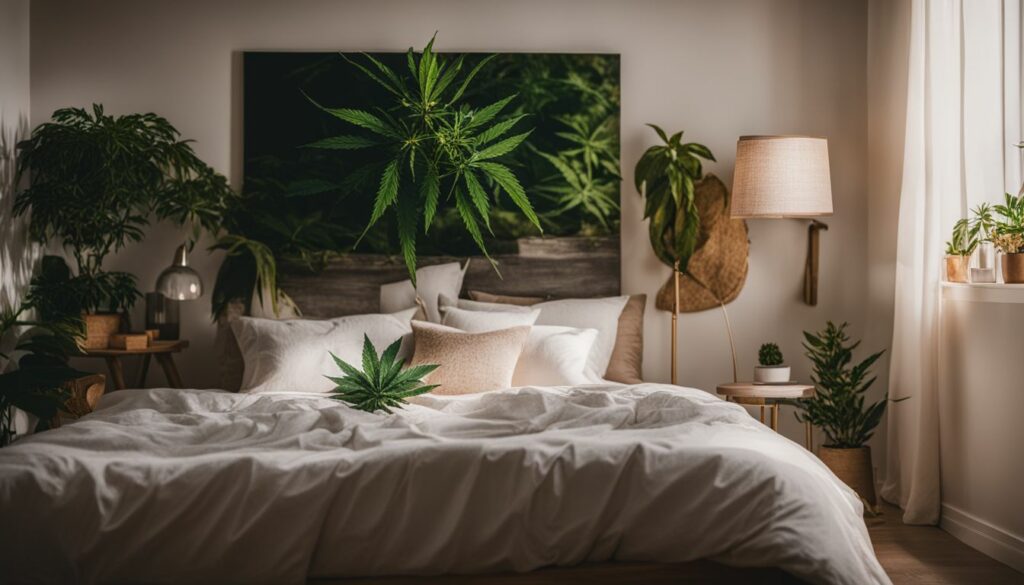70% Off Sitewide! Use code: TAKE70

Delta-8 Vs. Delta-9 For Sleep: Which One Is Best?
Are you struggling to get a good night’s sleep and wondering which cannabinoid might be beneficial? Both Delta-8 and Delta-9 THC are potent compounds found in cannabis plants, often used for their therapeutic effects.
In this article, we’ll dive deep into the world of these intriguing cannabinoids, comparing their potential benefits and risks for enhancing your sleep quality. Get ready – it’s time to unravel the great debate: Delta-8 Vs. Delta-9 – which one helps you snooze better?.
Understanding THC

THC, or tetrahydrocannabinol, is a cannabinoid found in cannabis plants that can have psychoactive effects on the body.
What is Delta-9 THC?
Delta-9 THC is a compound found in cannabis plants. Known for its effects of joy, creativity, and relaxation, it adds to a feeling of well-being. It looks like anandamide, used by our bodies to control many jobs.
We see Delta-9 THC in marijuana but also in hemp products. Hemp has less Delta-9 THC than marijuana does.
What is Delta-8 THC?
Delta-8 THC is a kind of chemical. It’s found in small bits in hemp and marijuana plants. There is a double bond on its eighth carbon chain, which sets it apart from other types of chemicals in its group.
Even if Delta-8 THC and Delta-9 THC look alike, they don’t stick to cannabinoid receptors as strongly.
Delta-8 might be better for those trying THC for the first time because the effects are not as strong as Delta-9. Though there isn’t much research about how Delta-8 works with sleep yet, people think it could help because of its calming effects.
Using this info can help you decide if it’s right for you.
The Endocannabinoid System & Sleep

Our bodies have a system called the endocannabinoid system. It plays a big role in sleep. It does many things, but most importantly, it helps keep our bodies balanced. CB1 and CB2 receptors are parts of this system.
Delta-8 THC talks to these receptors. How? It sticks to them like a magnet! This may make us feel calm and relaxed. These feelings can help us fall asleep faster and stay asleep longer.
More studies need to be done, but it seems Delta-8 THC could be good for people who can’t sleep well.
Research on THC and Sleep

Limited research exists on the effects of Delta-8 and Delta-9 THC on sleep because studying cannabis is difficult due to legal restrictions. However, previous studies have shown some promising results.
A review of these studies found that there isn’t enough evidence to support using cannabinoids for sleep disorders, but certain disorders show potential benefits that require further investigation.
One study discovered that daily cannabis use led to more sleep disturbances compared to non-daily use. On the other hand, a different study focused on adults with insomnia who used a cannabis oil blend with a specific ratio of THC to CBD.
They reported improvements in sleep quality, duration, mood, and overall quality of life. While research is still limited, this shows some positive indications regarding the potential impact of THC on sleep.
Comparing Delta-8 and Delta-9 THC for Sleep

When it comes to sleep, which THC is better? Delta-8 or Delta-9? Let’s dive into the potential benefits and risks of both to help you make an informed decision. Read on to discover more!
Potential Benefits
- Improved sleep quality and duration
- Enhanced mood and overall well being
- Relief from insomnia symptoms
- Calming of an overactive nervous system
- Increased appetite
- Prevention of sensory overstimulation
- Reduced inflammation in the body
Potential Risks
Potential Risks:
- Limited research on Delta-8 and Delta-9 THC makes it unclear what the long-term effects might be.
- Daily cannabis use has been linked to sleep disturbances, which could worsen existing sleep issues.
- Using cannabinoids for sleep disorders is not supported by enough evidence.
- It’s important to consult a medical professional before using Delta-8 or Delta-9 THC products for sleep.
Differences and Similarities between Delta-8 and Delta-9 THC
Delta-8 THC and Delta-9 THC share many similarities due to their nature as cannabinoids, however, they also have key differences that influence their effects and uses. These differences and similarities are crucial in understanding their potential benefits and risks.
| Delta-8 THC | Delta-9 THC | |
|---|---|---|
| Chemical Structure | Has a double bond on its eighth carbon chain. | Has a double bond on its ninth carbon chain. |
| Occurrence | Appears in small amounts in both hemp and marijuana. | Commonly associated with marijuana but can also be found in hemp products. |
| Binding Affinity | Has a weaker binding affinity to the body’s cannabinoid receptors compared to delta-9 THC. | Has a stronger binding affinity to the body’s cannabinoid receptors. |
| Potential Users | May be a better option for those who have never consumed THC before due to its weaker binding affinity and potentially easier-to-manage effects. | May be more suitable for those familiar with THC and its effects. |
Legality of Delta-8 and Delta-9 THC
Delta-8 THC and Delta-9 THC have different legal statuses. Delta-9 THC is considered a Schedule I controlled substance in the United States, meaning it is illegal at the federal level.
However, some states have legalized or decriminalized the use of Delta-9 THC for medical or recreational purposes. On the other hand, the legality of Delta-8 THC is more complicated.
It is derived from hemp, which was legalized under the 2018 Farm Bill as long as it contains less than 0.3% Delta-9 THC. However, some states have banned or restricted the sale and possession of Delta-8 THC due to concerns about its similarities to Delta-9 THC and potential misuse.
It’s important to be aware of your state’s specific laws regarding both types of THC before using them for sleep purposes.
Please note that this information may change over time and it’s always best to consult with local authorities or legal professionals for up-to-date information on the legality of these substances in your area.
Which is Better for Sleep: Delta-8 or Delta-9 THC?
Delta-8 and Delta-9 THC are both cannabinoids found in cannabis plants. When it comes to sleep, it is difficult to determine which one is better because there is limited research available.
However, some studies suggest that daily cannabis use may lead to more sleep disturbances. It is important to note that using any form of THC for sleep should be done under the guidance of a medical professional.
Consulting with a healthcare provider can help determine the best approach for addressing your individual sleep needs.
Conclusion
In conclusion, Delta-8 and Delta-9 THC are both cannabinoids found in cannabis plants that have potential benefits and risks for sleep. While limited research is available, it’s important to consult a medical professional before using these products.
For those new to THC, Delta-8 may be a better option due to its weaker effects, while those familiar with THC may prefer Delta-9. Individual experiences vary, so it’s crucial to experiment responsibly and find what works best for you.
FAQs
1. What is the difference between Delta-8 and Delta-9?
Delta-8 and Delta-9 are two different forms of THC, the compound found in cannabis. While both can have psychoactive effects, Delta-8 tends to be less potent and may cause milder side effects compared to Delta-9.
2. Can Delta-8 or Delta-9 help with sleep?
Both Delta-8 and Delta-9 can potentially help with sleep due to their relaxing effects. However, individual experiences may vary, so it’s best to consult a healthcare professional for personalized guidance.
3. Is one better than the other for sleep?
There is no definitive answer as to which form of THC is better for sleep as it depends on individual preferences and tolerances. Some people may find that they have a better experience with one over the other.
4. Are there any potential risks or side effects with using either form of THC for sleep?
While both Delta-8 and Delta-9 are generally considered safe when used responsibly, they can still cause side effects such as drowsiness, dry mouth, increased heart rate, or changes in appetite. It’s important to start with low doses and monitor your body’s response before increasing consumption levels.